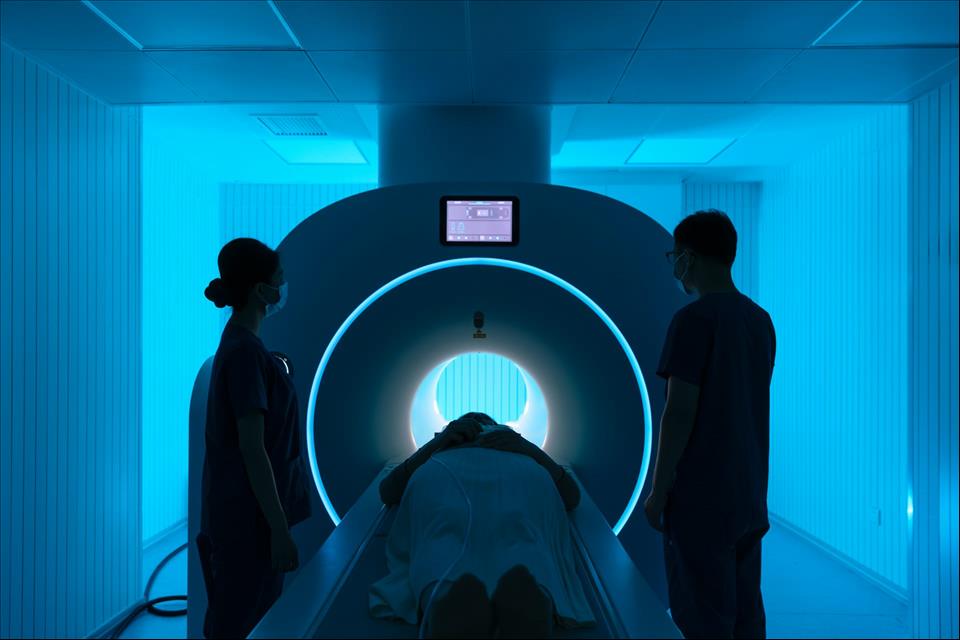
A Booming Longevity Industry Wants To Sell Us 'Immortality'. There Could Be Hidden Costs
Social media is flooded with influencers promoting peptides ,“functional” mushroom powders and other (often non-evidence-based) hacks said to maximise your lifespan. Some even claim to reverse your“biological age”.
The quest to live longer, look younger or just live one's“best life” has become a booming industry , encompassing treatments as diverse as ice baths , saunas , cryotherapy chambers and even red light therapy .
But behind much of the marketing and social media posts are commercial interests willing to cater to a population fearful of ageing and dying.
Nobody lives foreverThe key reason humans aren't immortal hinges on evolution. This process favours genetic traits promoting successful reproduction and adaptation over those promoting unlimited lifespan for individuals.
The ancient Greeks told cautionary tales about life extension. Those who reached for immortality mostly found this came at a terrible cost. The mythical Tithonus, for example, was doomed to endless ageing and decline after being granted eternal life without eternal youth.
Fast forward to today, the longevity industry has the backing of venture capital funds , celebrity investors and pharmaceutical companies .
But much of this money is being funnelled into products and services with little or no evidence for how they actually improve health or lengthen lifespan.
In his well-publicised quest for life extension, US venture capitalist Bryan Johnson reportedly spends millions and undergoes constant medical testing with the impossible aim of never dying .
Johnson's longevity regimen includes a hyper-controlled diet, hundreds of daily supplements and strict sleep and exercise routines. He has even received transfusions of his own son's blood plasma .
We see three major problems with the longevity industry that are a cause for concern.
Profit before evidenceInnovation is central to the longevity industry, attracting an influx of Silicon Valley investors seeking to“hack” the ageing process. Yet, these innovations are infrequently backed by high-quality evidence .
For example, full-body MRI is marketed as a way to identify cancer and other abnormalities early before they are harder to treat. Yet, there is no evidence these scans improve health outcomes . Medical colleges around the world do not recommend full-body MRI in healthy individuals .
Tests like these can lead to“incidentalomas” – unexpected findings that may prompt unnecessary follow-up procedures, costs and anxiety.
The longevity industry pitches itself as a disruptive alternative to mainstream health care. But it still depends on that system to function. Scans, blood tests and experimental treatments inevitably flow back into hospitals and clinics for follow-up, specialist consultations and interventions.
This puts added strain on already stretched services – both financially and in terms of workforce – while arguably delivering little benefit to population health.
Unnecessary tests can divert precious resources from a health-care system already under strain. Lourdes Balduque/Getty Test and you shall find
Despite widespread public enthusiasm for screening tests, experts have long warned more testing does not always lead to better health.
One of the clearest risks is overdiagnosis – when an abnormality or disease is diagnosed that will never impact a person's health during their lifetime. The more you test, the more you'll find – much of it clinically irrelevant. This creates a self-affirming cycle .
Unnecessary investigations can result in overdiagnosis, incidental findings and potentially cascades of further unnecessary procedures or tests.
Read more: We analysed almost 1,000 social media posts about 5 popular medical tests. Most were utterly misleading
Longevity isn't the same as preventionMarketers of longevity claim their services and products are part of“preventive” medicine: spotting disease before it strikes and keeping people healthier for longer.
But the longevity movement differs drastically from the public health principle of prevention.
Prevention, in mainstream medicine , is about simple, evidence-based measures . This includes immunisations and screening for cancer at the right ages.
But there's no clear evidence many of the exhaustive tests and treatments the longevity industry promotes improve long-term outcomes for otherwise healthy people.
They simply cost a lot of money, are resource intensive and may lead to further unnecessary testing.
Why this mattersBy medicalising ageing, the longevity movement is a classic example of disease mongering . It also risks embedding ageism into everyday commerce – pathologising normal ageing rather than accepting it as part of life.
It also risks diverting attention and resources away from important and basic public health system functions that can improve quality of life for millions as we all gracefully age.
The hype around many unfounded longevity claims distracts us from what we already know works: regular exercise, healthy food, sound sleep, meaningful relationships and fair access to evidence-based medical treatment.

Legal Disclaimer:
MENAFN provides the
information “as is” without warranty of any kind. We do not accept
any responsibility or liability for the accuracy, content, images,
videos, licenses, completeness, legality, or reliability of the information
contained in this article. If you have any complaints or copyright
issues related to this article, kindly contact the provider above.

















Comments
No comment